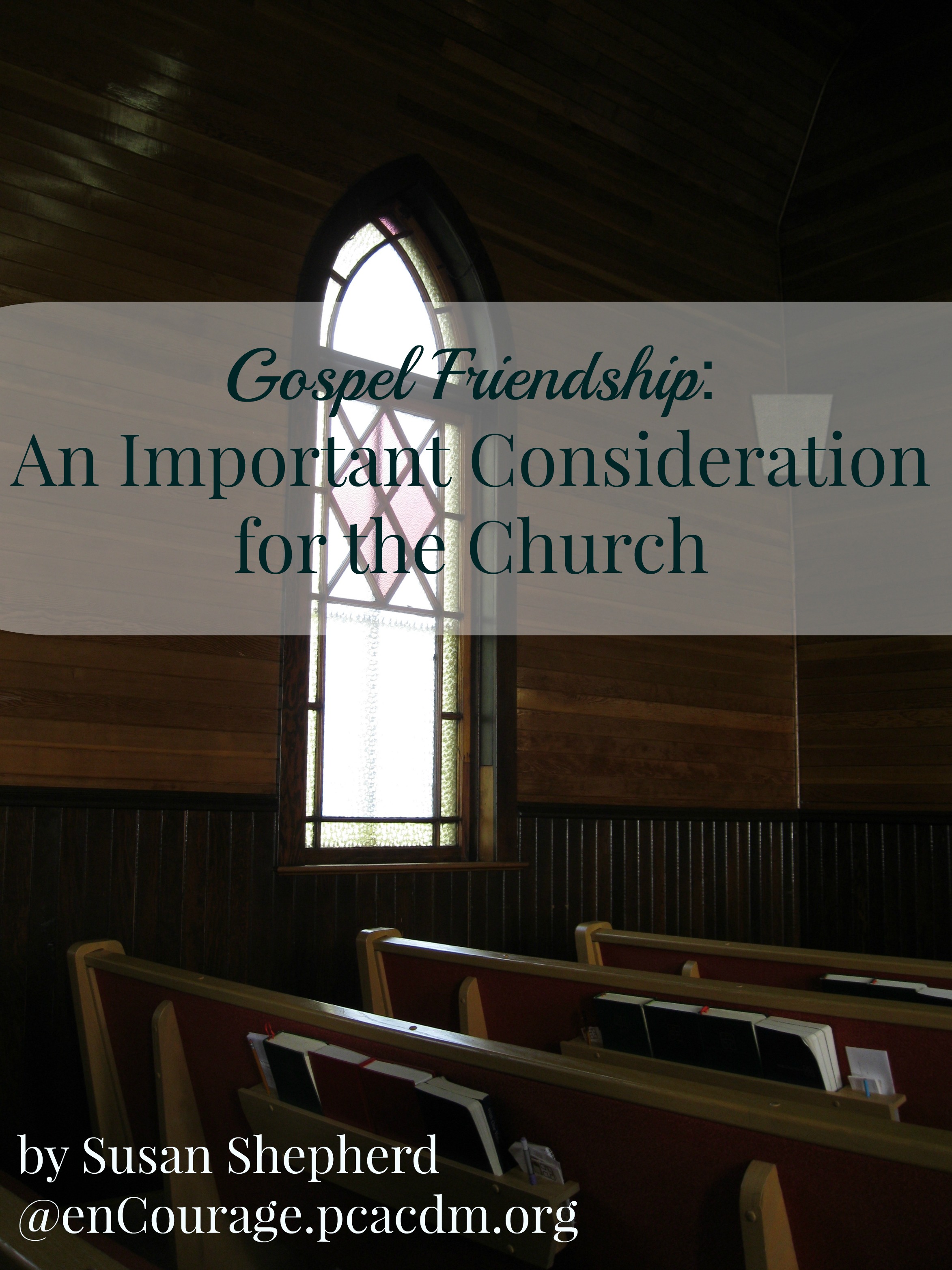SUSAN SHEPHERD|CONTRIBUTOR
“I love my computer because my friends live in it.”
That meme popped up on my Facebook feed recently with tongue-in-cheek humor, revealing a trend that is a sad diagnostic of our generation. Even the fact that it was posted, liked and shared on Facebook is ironic…and telling.
Friendship. Even a casual study on the cultural definition of friendship raises concern about this important aspect of our lives as the desire for meaningful, life-giving, committed relationships seems to be on the decline – leaving in its stead two relational extremes: detached, remote connections through social media and self-serving, emotionally dependent relationships that typically “crash and burn” with time.
From the very time of creation, the Father had in His mind something more for humanity. Genesis1:26 reads: “let us make man in our image, after our likeness.” This is the first occasion in Scripture of a plural pronoun, revealing God in community – it is the first hint of the Trinity. It is instructive that the text reads with this communal pronoun particularly as it describes the creation of humanity. Man, created in the image of God, is made for community. For friendship.
The Apostle Paul picks up the significance of this truth, particularly as it relates to women, in Titus 2:3-5. It’s important that these verses are not isolated from the rest of the text because the context gives weight to our application. This little letter is written to Titus, a leader of the churches on the island of Crete and its message was meant to be shared with those congregations as a means to their growing spiritual maturity. That may seem an insignificant detail, but it speaks to the fact that these things that Paul says are meant to be applied in the church. This is the way that we do life in the church. It is in these ways that we are “set apart” as believers, living in ways that are unique and different and, often, counter-cultural.
As we read Titus 2:3-5 (and, in fact, through verse 10!), we understand that friendship defined by a “thumbs up” on Facebook or a shared snapshot on Instagram cannot suffice for women in the church. Whatever our lives are like in the world, there is no place in the church for the Lone Ranger (and even he had Tonto). If we are to grow in our likeness to Christ and our love for the Gospel, we must do so together. Paul’s clear admonition to Titus and his little congregation is that, in the church, we do life together…never alone.
Most commentators agree that Paul’s major concern as he writes this letter to Titus is the threat of false teaching in the church (see 1:10-16). Such heresy seemed to allow for ungodliness, a serious matter in a city known in its time for its rampant immorality (sound familiar?). In Titus 2, the Apostle paints a portrait for the church of the impact of the Truth on our lives. In other words: This is what a healthy church looks like. This is what sound teaching does to people. And, at least in part, the vitality of a church is measured by its experience of real, true community. Friendship, then, is a visible demonstration of a church’s having embraced the Gospel of Christ. (Remember John 13:35? “By this all people will know that you are my disciples, if you have love for one another.”)
This is not the only time that Paul instructs the church around relationships. In his letter to the Philippians, the Apostle exposes two women in the church because they were presumably engaged in a squabble that disrupted the unity of the church. Poor Euodia and Syntyche! Isn’t it unfortunate that their claim to fame for all of Christendom is their inability to get along!
There’s certainly more to that story, and Paul would not have thrown these two sisters under the proverbial bus simply to embarrass or humiliate them. We can be sure that his attention to this matter suggests that its impact was widely felt by the members of that congregation. The tension between these two women threatened the church. This singular, unhealthy relationship had the potential to impact their little church for good or evil, for unity or factionalism, for kindness or cliques…
Sisters, our character and relationships to one another in the church matter! Women have more influence than we might think, and how we relate to one another has a broad impact on the church. Our friendships, for better or for worse, have a ripple effect…and everyone in the church feels the swell of the current.
A portrait of vitality. The beauty of the familiar verses found in Titus 2 is that Paul has painted such a rich, deep and life-giving portrait of friendship between men and women in the church. I wonder if there’s a meme that reads: “I love my church because my friends live there!” That seems like it might merit a thumbs up…even from Paul!
Editor’s note: this is the first in a series of articles from Susan Shepherd on this topic. Stay tuned!

